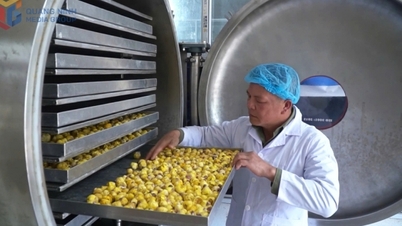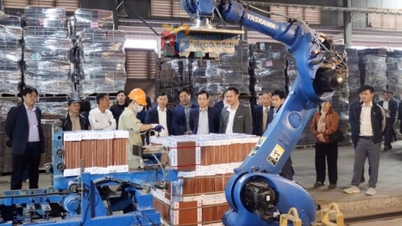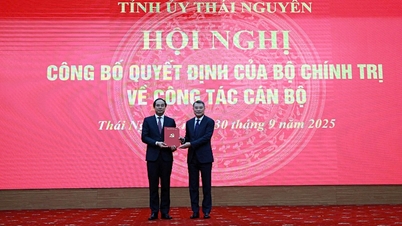Temu has pushed prices down to "unimaginable" levels, making not only European retailers but also the Chinese "giant" AliExpress wary.

Temu not only broke all the norms but also attracted millions of consumers with its unprecedented low-priced products.
However, behind this shopping frenzy is a series of worrying issues about hidden costs as well as threats to the European economy .
Le Soir newspaper (Belgium) has analyzed this issue in detail.
Unbelievable price
In less than two years, from a completely unknown name, Temu has quickly spread globally, covering even European markets.
Known for its thousands of non-food products priced from just a few euros, Temu has pushed prices down to “unimaginable” levels, making not only European retailers but also the Chinese “giant” AliExpress wary.
The promise remains consistent: on Temu, users can buy everything at incredibly low prices. This is an effective positioning strategy. According to a recent survey by the Belgian E-Commerce Federation (BECOM), reasonable prices and the expectation of bargains remain the top factors that motivate Belgian consumers to shop online.
To encourage shoppers to buy and convince those who are still hesitant, Temu deploys a series of sophisticated marketing strategies. In addition to focusing on marketing and improving the website interface, Temu also integrates a game element into the customer experience. Upon accessing the app, users are invited to spin the wheel with the promise of a discount code.
“In my opinion, Temu is the first major brand to incorporate this entertainment element,” analyzes consumer psychologist Alexandra Balikdjian from the Free University of Brussels (ULB).
Temu’s strategy has brought the company to success in record time. Temu does not disclose specific information about the number of users in Belgium. However, after only one year of entering the European market, the platform has built a strong brand image, quickly capturing the minds of many consumer groups when they decide to shop.
How can a company make a profit selling products like T-shirts, cameras or pots for just a few euros while offering free shipping from China?
Currently, according to many observers, profit is not the top priority of Temu. The e-commerce platform is mainly focused on increasing its popularity and market share. By connecting major Chinese distributors directly to the rest of the world , the platform can reduce prices by eliminating many unnecessary intermediaries.
However, these factors are not the only reasons for their business strategy. “When it's free, you are the product.” This famous saying fits perfectly with Temu's business model.
Another aspect of these low prices is the quality of the products, which is often considered poor, according to Axel Legay, a cybersecurity researcher at UCLouvain Polytechnic.
Earlier this year, the Belgian consumer association Testachats gave the platform a failing score after analyzing dozens of products. Testachats pointed to a number of issues, including the lack of a CE mark (a mandatory requirement for marketing products in Europe, ensuring they meet safety standards), the presence of counterfeit goods, and other safety-related violations.
Europe's concerns
China’s e-commerce boom during the COVID-19 pandemic is having a profound impact on its industry rivals, a fact made all the more apparent by the fact that competition is not on a level playing field.
"Europe is not playing its role," said Pierre-Alexandre Billiet, CEO of Gondola Group. "We impose rules in the internal market of the Union, but these rules are not followed in external markets because they are not enforced."
This loophole is being exploited by Chinese digital giants, causing major disruption in the European market. Domestic production is struggling, while consumers tend to divert some of their purchases to non-European suppliers.
At the Belgian Trade Union Confederation (COMEOS) and the Independent Trade Union (SNI), many opinions expressed concerns about the difference in treatment between domestic businesses and foreign e-commerce platforms.
This year, COMEOS invited Professor Roel Gevaers from the University of Antwerp to conduct a study on the e-commerce landscape in Belgium.
He pointed out that the role of Chinese operators is growing, especially in the fashion sector, with names like Shein and AliExpress among the top five largest suppliers today.
Realizing that it cannot win a price war with Chinese suppliers, SNI Union is focusing on the value added by local traders to differentiate itself.
They aim for a niche model that, in theory, doesn’t compete directly with China’s big e-commerce platforms, but whose influence still extends all the way to the checkout counters.
“The real cost of cheap products is not only deindustrialization, but also e-commerce monopolies and uncontrolled consumption,” said Pierre-Alexandre Billiet, highlighting the gradual decline of the European textile industry.
While consumers hoarding “plastic goods with no real value” makes it difficult for the economic cycle to continue, Temu’s rise is a real wake-up call. “Their model is incredibly powerful.
“This is a socio-economic ‘tsunami,’” the economist stressed. “The damage is the loss of jobs and the entire local production and distribution network – all overwhelmed by large trading floors that cannot compete and accept selling at prices almost below cost.” The bankruptcy of a series of fashion brands, from production to distribution, in the past few years is the first warning sign of this trend.
“In Europe, the costs of pollution and labor are increasingly being directly included in production costs, pushing up prices. In Asia, the opposite is happening. We are facing the loss of domestic industry and over-consumption, creating two mutually reinforcing phenomena,” said Pierre-Alexandre Billiet.
Criticism from many sides
The European Commission (EC) is investigating Temu for suspected non-compliance with the Digital Services Act (DSA). After rapidly expanding its operations in Europe, Temu is now facing criticism from many sides, although it remains popular with consumers.
The EC has launched an investigation to determine whether Temu has violated the provisions of the DSA Act. The DSA Act is a new European legal framework to prevent shady practices and illegal content on major digital platforms.
Companies with more than 45 million monthly active users in the European Union (EU) are required to comply with this law. As of May 31, 2024, Temu (which reported 92 million users in September 2024) has been classified as a large digital platform and is therefore required to comply with these regulations.
However, the question is whether Temu is actually complying and Europe is skeptical about this, leading to the opening of an investigation.
In a press release, the EU warned of “risks associated with the potentially addictive design of the service, which could have negative consequences for users' physical and mental health.”
Not stopping there, in recent months, consumer protection associations have repeatedly warned about the non-compliance and even danger of some products sold on the platform. The EC will also investigate the measures that Temu has taken to “restrict the sale of non-compliant products in the EU.”
An analysis of how the Chinese company prevents the return of suspended sellers will also be carried out. The EC is looking at how Temu recommends content and services to users to ensure that the techniques used comply with the DSA.
The agency will also examine whether Temu fulfills its obligations to provide researchers with access to the platform's data.
It is important to stress that at present there are only suspicions. This investigation will help to verify or disprove those suspicions. In the coming months, the EC will ask Temu for further information and continue to gather evidence before deciding on the next course of action.
If the suspicions are confirmed, Temu could face a number of penalties, including fines of up to 6% of its annual turnover.
The investigation into Temu comes amid growing suspicions about the Chinese e-commerce platform.
At the end of September, six EU member states, including France and Germany, formally requested the EC to take measures against Temu.
In Belgium, many businesses in the commercial sector have also expressed concerns about the "unfair" practices of this "giant". This issue was discussed at the European Parliament (EP) in October, with a heated debate.
Many MEPs have called for a more stringent regulatory framework, particularly regarding customs duties, given that there is currently a duty-free regime for products valued below 150 euros.
These efforts are aimed at restricting imports of goods from China and creating a fairer "playing field" for European businesses as well as those outside the region./.
Source



![[Photo] Panorama of the cable-stayed bridge, the final bottleneck of the Ben Luc-Long Thanh expressway](https://vphoto.vietnam.vn/thumb/1200x675/vietnam/resource/IMAGE/2025/9/30/391fdf21025541d6b2f092e49a17243f)
![[Photo] President Luong Cuong receives President of the Cuban National Assembly Esteban Lazo Hernandez](https://vphoto.vietnam.vn/thumb/1200x675/vietnam/resource/IMAGE/2025/9/30/4d38932911c24f6ea1936252bd5427fa)
![[Photo] Solemn opening of the 12th Military Party Congress for the 2025-2030 term](https://vphoto.vietnam.vn/thumb/1200x675/vietnam/resource/IMAGE/2025/9/30/2cd383b3130d41a1a4b5ace0d5eb989d)
![[Photo] The 1st Congress of Phu Tho Provincial Party Committee, term 2025-2030](https://vphoto.vietnam.vn/thumb/1200x675/vietnam/resource/IMAGE/2025/9/30/1507da06216649bba8a1ce6251816820)
![[Photo] General Secretary To Lam, Secretary of the Central Military Commission attends the 12th Party Congress of the Army](https://vphoto.vietnam.vn/thumb/1200x675/vietnam/resource/IMAGE/2025/9/30/9b63aaa37ddb472ead84e3870a8ae825)































































































Comment (0)